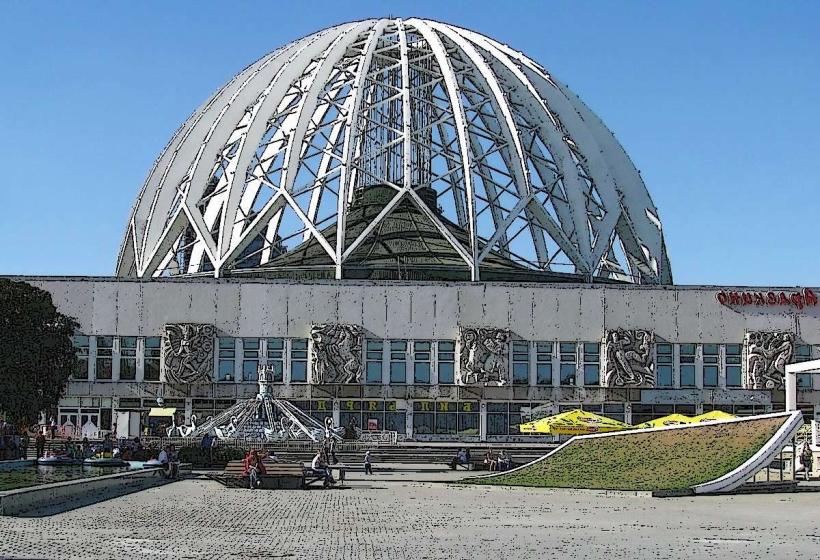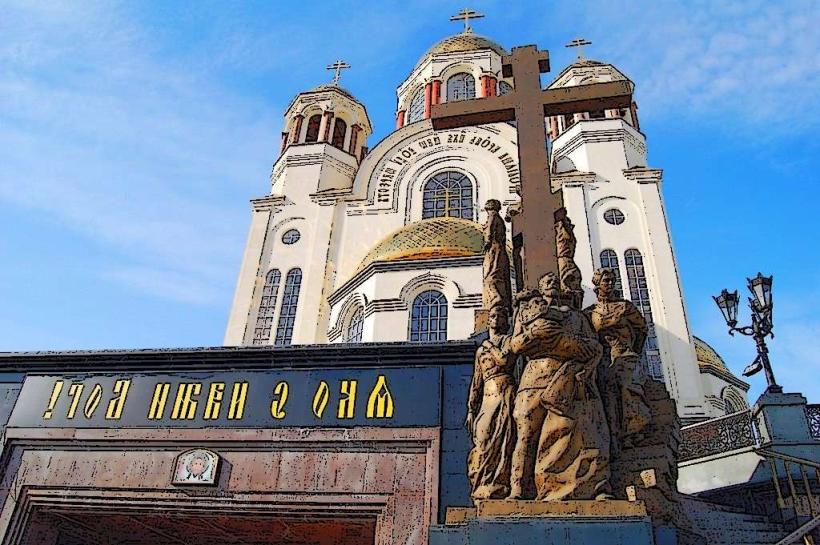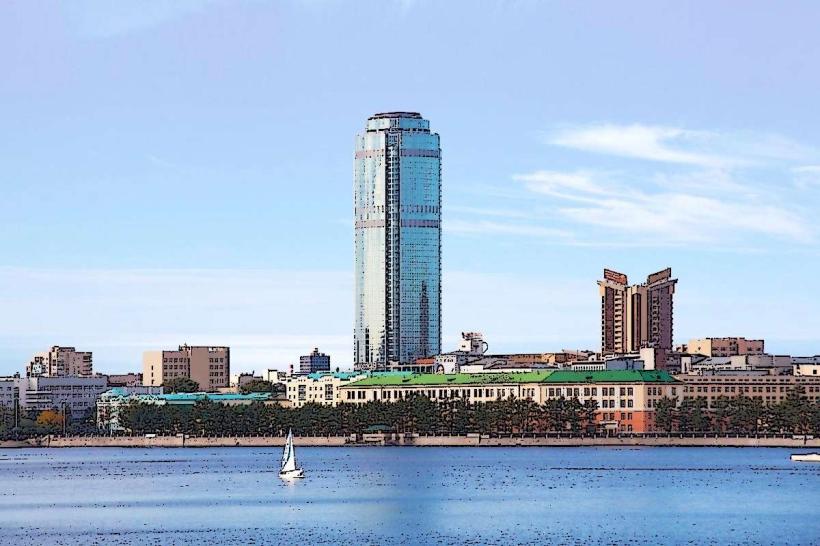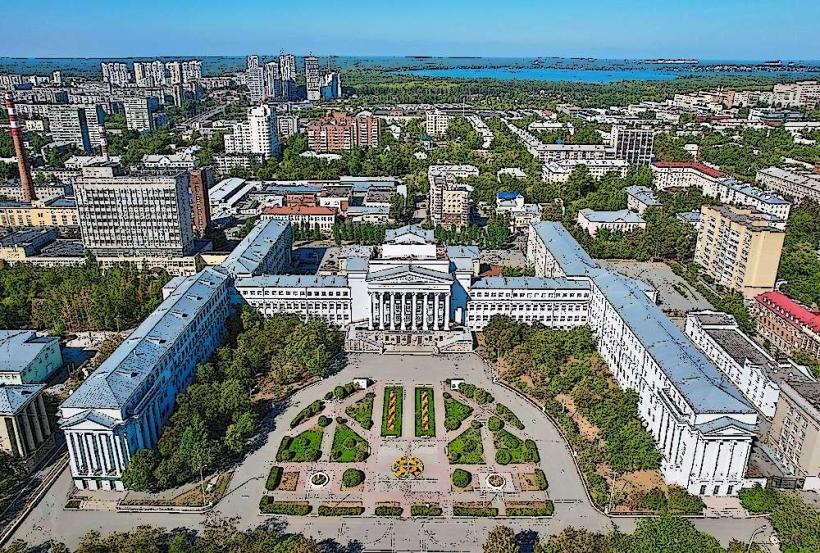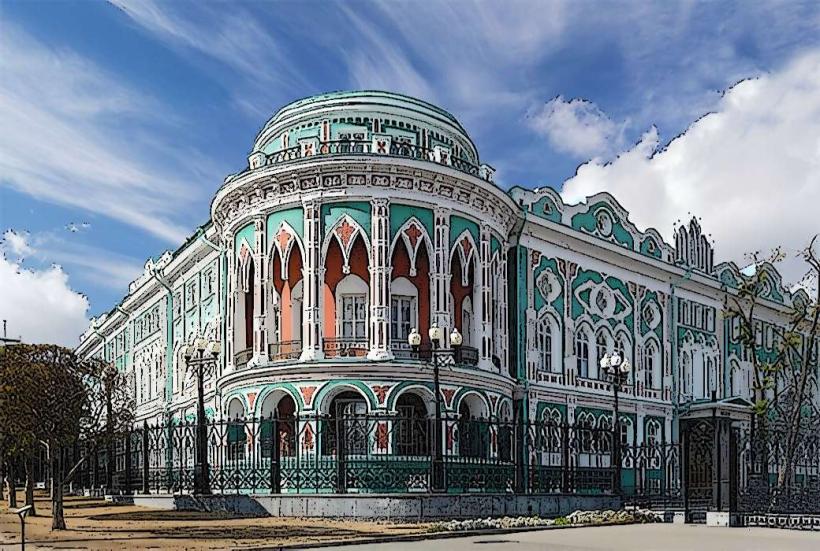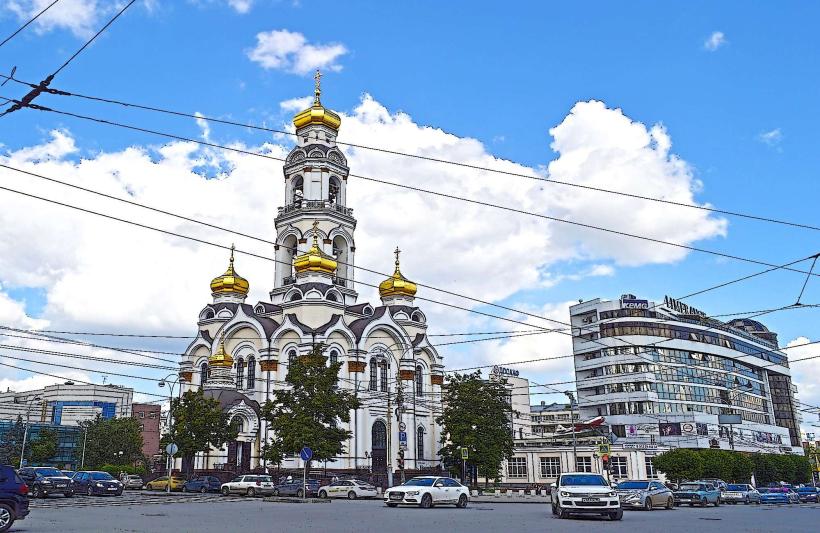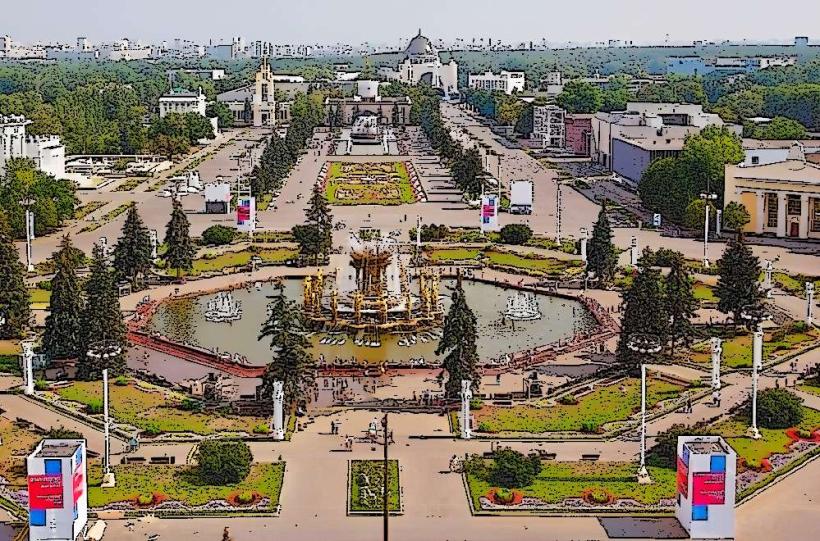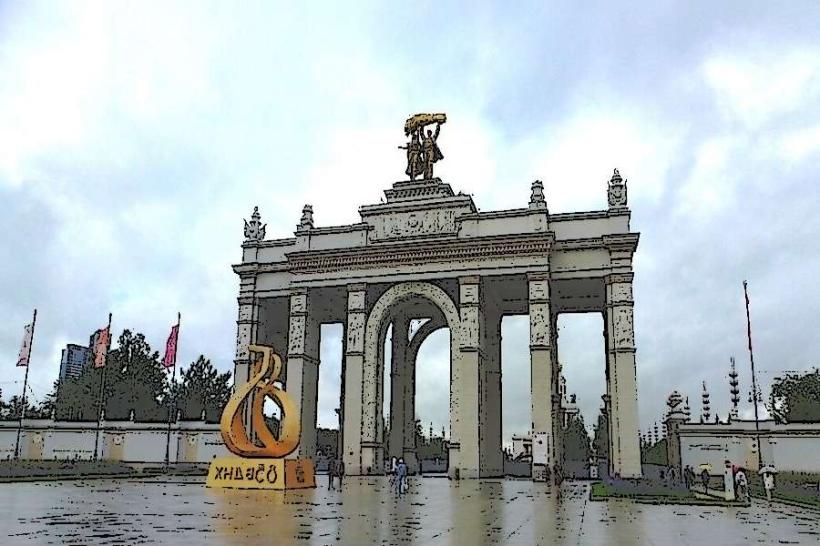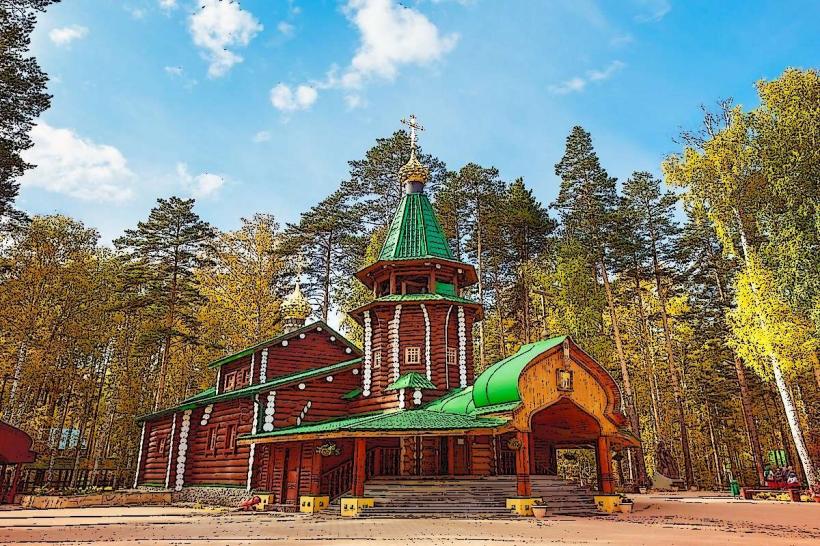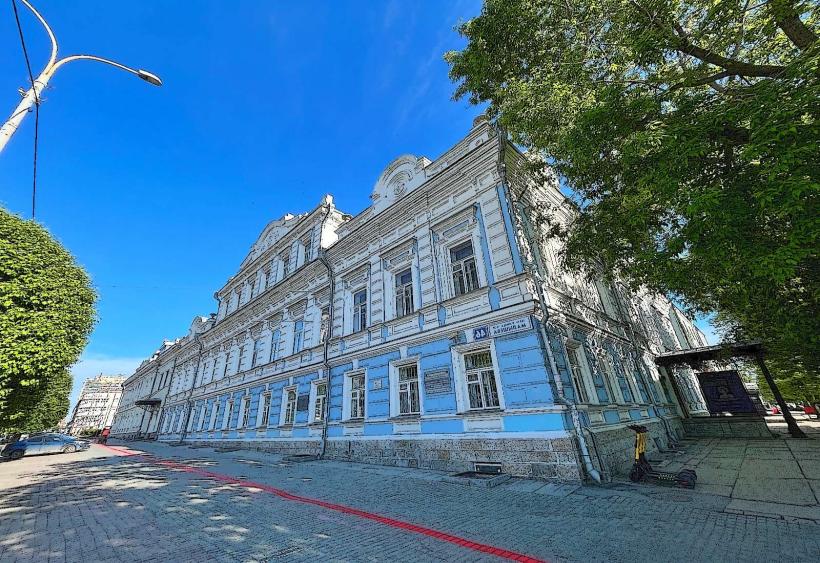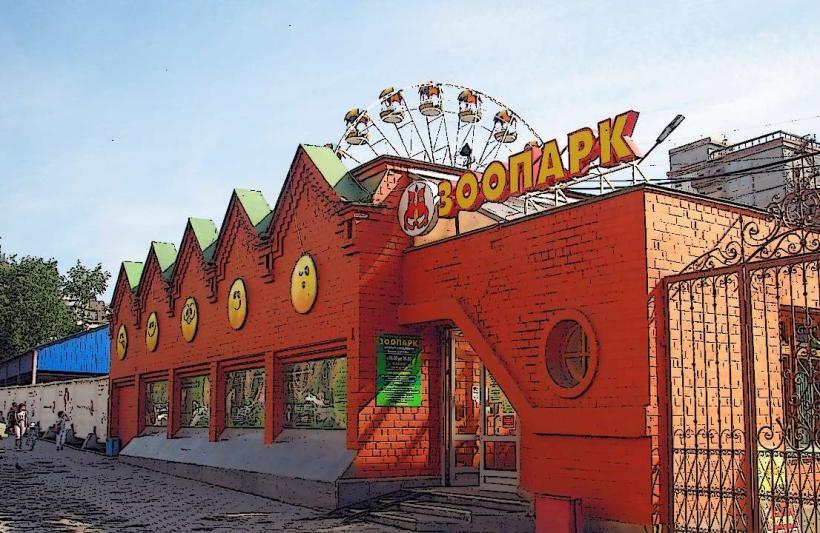Information
City: YekaterinburgCountry: Russia
Continent: Europe
Yekaterinburg, Russia, Europe
Yekaterinburg serves as the primary industrial and cultural center of the Ural Federal District and is frequently cited as the "Third Capital of Russia." It is located on the eastern slopes of the Ural Mountains along the Iset River, marking the geographical boundary between Europe and Asia.
Historical Timeline
Founded in 1723 by order of Peter the Great, the city was named after Empress Catherine I. It developed as a strategic mining and metallurgical hub. The city is most historically significant as the site of the 1918 execution of the last Russian Tsar, Nicholas II, and the Romanov family. During the Soviet era, it was renamed Sverdlovsk (1924–1991) and served as a "closed city" due to its critical defense and heavy machinery industries. In 2026, it remains a vital transport link on the Trans-Siberian Railway.
Demographics & Population
The metropolitan population is approximately 1.54 million as of 2026. The demographic is predominantly ethnic Russian, with significant communities of Tatars, Ukrainians, and Bashkirs. The city has a high concentration of technical professionals and students due to its status as a major scientific and educational center.
Urban Layout & Key Districts
Yekaterinburg is organized around the Iset River and its central dam ("Plotinka").
Leninsky District: The administrative and historic heart, including 1905 Square.
Verkh-Isetsky District: Known for the Yeltsin Center and modern skyscraper developments.
Oktyabrsky District: Houses the central business district and the Vysotsky Skyscraper.
Uralmash (Ordzhonidzikidzevsky): Historically the industrial powerhouse of the city, now a dense residential area.
Top City Landmarks
Church on the Blood: Built on the site of the Ipatiev House, where the Romanovs were executed.
Yeltsin Center: A massive museum and cultural hub dedicated to Russia's first president, Boris Yeltsin (a local native).
Vysotsky Skyscraper Observation Deck: Offers 360-degree views of the city from 186 meters up.
Sevastyanov House: A distinct, brightly colored 19th-century palace in the neo-Gothic/Moorish style.
Plotinka (The Dam): The social center of the city, located on the Iset River.
Keyboard Monument: A large-scale stone outdoor sculpture of a QWERTY keyboard.
Transportation Network
Internal movement is facilitated by the Yekaterinburg Metro (a single north-south line), as well as an extensive tram and bus network. In 2026, a single metro or bus trip costs 31–33 RUB ($0.35–$0.40). Koltsovo International Airport (SVX) is a major regional hub. Ride-sharing is dominated by Yandex Go. Taxis are the recommended mode for foreign travelers to ensure safety and convenience.
Safety & "Red Zones"
The city is generally safe for travelers, though Western governments maintain "Do Not Travel" advisories in 2026 due to the geopolitical situation. Public political activism is strictly prohibited. The Uralmash and Elmash districts should be avoided late at night. Pickpocketing is a moderate risk in the CBD and on the Vayner Street pedestrian mall.
Digital & Financial Infrastructure
Foreign-issued Visa and Mastercard cards do not work. Travelers must carry cash (RUB) or use a local MIR card. Fiber internet is ubiquitous (50–100 Mbps). Access to Western platforms (Instagram, YouTube, etc.) remains restricted or blocked in 2026, requiring a VPN.
Climate & Air Quality
The city has a humid continental climate with sharp transitions. Winters are long and cold ($−12^{\circ}\text{C}$ to $−20^{\circ}\text{C}$); summers are short but warm ($18^{\circ}\text{C}$ to $26^{\circ}\text{C}$). Air quality is moderate; industrial emissions can cause localized smog during periods of low wind.
Culture & Social Norms
Social standards are professional and slightly more reserved than in Southern Russia. Tipping of 10% is standard. It is customary to remove shoes when entering a home. The "Ural character" is often described as blunt but sincere. Dress code is casual-smart, but heavy winter gear is mandatory for survival between November and March.
Accommodation Zones
City Center (near 1905 Square): Best for tourism and walking access to the Red Line (official tourist route).
Vaynera Street: Ideal for those seeking shopping and nightlife.
Local Cost Index
1 Espresso: 200 RUB ($2.20)
1 Standard Lunch: 500–750 RUB ($5.50–$8.20)
1 Liter of Petrol: 63 RUB ($0.70)
Nearby Day Trips
Europe-Asia Border Monument: Located 17 km west of the city.
Ganina Yama: A monastery complex built at the site where the Romanovs' remains were initially hidden.
Deer Streams (Olenyi Ruchyi) National Park: 120 km (2 hours) for hiking and karst caves.
Facts & Legends
A verified historical oddity is that Yekaterinburg is the largest city on the geographical border of Europe and Asia. A prominent local legend concerns the Rastorguev-Kharitonov Mansion, which is rumored to have a network of secret underground tunnels leading to the Iset River, used by the merchant owners for illicit activities. The city is also the birthplace of Sverdlovsk Rock, a unique sub-genre of Russian rock music that was central to the late Soviet underground scene.

